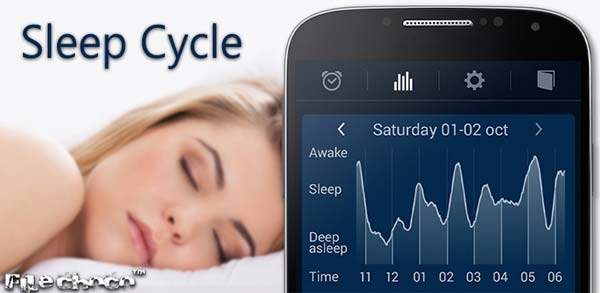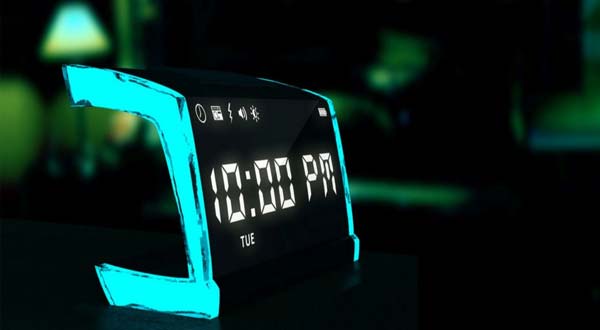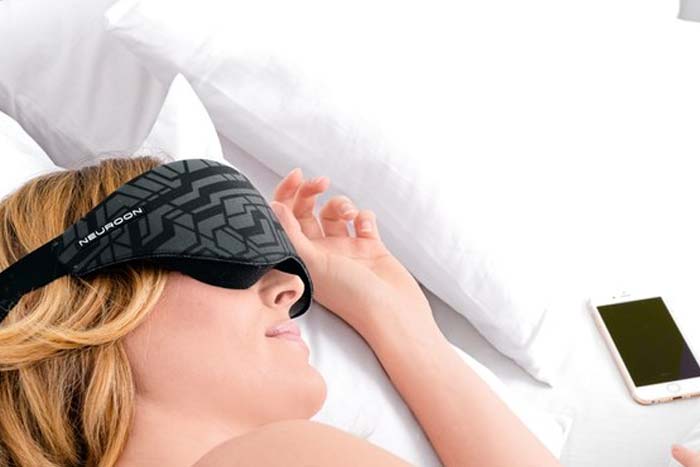We now dwell in a technological savvy environment where every aspect of life has a digital approach to embracing it. The subsequent alternatives to the traditional ringing alarm clock are a typical example of the transformation changes that technology brings to modern life style. Wearable manufacturers have devised not only alternative ‘efficient’ ways of waking up the wearers of these technological gizmos, but have also come up with additional ways to train wearers or people in general, on effective ways to sustain well and medically recommended sleep patterns. There have been wearable devices that vibrate to signal morning hours and those that record daily sleep patterns so as to automatically wake you up at the ‘right’ time. Of course there is also Pavlok, the wearable that literally zaps away your bad sleep patterns and habits. The real question though is not the unique technology that these wearables use but whether or not they will eventually solve the ultimate sleep disorders.
1. Premise of their Functionality
The process of waking up is a series of events that involves close to eleven neurotransmitters and several hormones such as dopamine and glutamate. Opening up the eyes after night’s sleep is a simplified way to explain the process of waking up, assuming you had a peaceful sleep. However, from a scientific point of view, the process of waking up involves quick establishment of consciousness in an intermittent pattern; this is followed by a gradual period or regaining alertness that comes approximately half an hour later. There is very little medical research done on this period of trying to regain alertness that wearable manufacturers and interested scientists have capitalized on.
2. The vibrating approach-Smart Alarms

Modern day wearable alarm devices do not in most cases produce irritating ringing sounds just to put you on your feet in the morning although it can be argued to be a reliable, the-end-justifies-the-means tactic. However, it does not work in all cases and this is where wearable ‘smart’ alarm gizmos come into play. They focus on helping those who do not fancy the traditional alarm clocks. Wearables such as Fitbit, Jawbone and famous Sleep Cycle Alarm Clock app are ‘smart’ in the sense that they analyze sleep patterns so as to accurately determine the optimal time to wake up. The Jawbone alarm for instance vibrates to wake up the user based on 90-minute sleep patterns.
3. The Jolting Approach-Zapping Alarms
Pavlok smart alarm employs a military approach to wake you up. It relies on an electric biofeedback mechanism that utilizes the electrical stimulus running throughout the body and the brain to snap you out of sleep with an immediate effect. One of the reasons why traditional alarm clocks are not very reliable when it comes to waking people up is because they come with ‘off’ buttons, or in the case of digital alarm clocks, snooze buttons that are easily accessible even in unconscious state of mind. This makes it very easy to postpone the ‘right’ time of waking up. However, with the Pavlok wearable and other zapping alarm devices, the shocking mechanism is way to suddenly alert the mind and drive away sleep in an instant. Of course the use of electrical shock is not harmful or proportional to the shock you can get from a loose live and unmanned electrical wire; it is just the right amount to open your eyes. The zapping mechanism can enable people to train themselves to adapt to recommended or set times of waking up. Incidentally, the very knowledge that you are wearing an electrical zapping device on your arms during sleep will make you alert throughout the night but not to the point of causing insomnia.

4. The ideal common ground
In a hypothetical world where there are no problems, commitments, distractions, entertainments or any other factor that might disrupt sleep; the process of waking up should be a natural process. Fortunately, this process is attainable for most people except that with the above factors in play, it is almost impossible to wake up through normal means and as a result we must rely on alarm clocks in order to start the day at the desirable time. If it were an easy decision, waking up through normal means would be most recommended because the body will be alert if only it had a complete rest. Besides, it is also important for those with stress to wake up naturally and a reversion of this process will only aggravate the situation. Waking up through alarms or any other technological intervention on the other hand might get you to the interview, airport or work on time but it will be harmful to the body’s physiological processes in the long run.
See Also: Anti Snore Wearable Device – Fact You Should Know
Conclusion
The debate as to whether or not to rely on wearables for sleep pattern modification may appear to have reached an impasse but the ultimate solution lie on the user. If it is a matter of functionality, these wearables are efficient and reliable. Their use might be inevitable but once in a while it is recommended to allow the body to rest and wake up naturally for optimum physiological performance.


